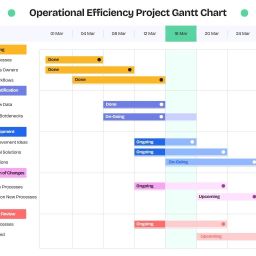
Avinav Nigam, Tern Group
The healthcare sector is currently struggling with a significant challenge: an increasing shortage of skilled professionals that risks undermining both the quality of care and the long-term viability of healthcare systems worldwide.
From overworked nurses and carers to the scarcity of specialised doctors, the demand for healthcare services far exceeds the supply of qualified staff.
In the UK, the NHS is facing a shortfall of more than 150,000 healthcare professionals, a crisis mirrored in many countries across the globe. Tackling this issue requires more than simply filling positions. A strategic approach, rooted in effective project management and supported by innovative solutions, is essential to address the nature of the problem.
Adopting a holistic talent strategy
The current approach to hiring, training, and retaining healthcare workers is insufficient. Healthcare organisations must adopt a comprehensive talent strategy spanning the entire employee lifecycle. This begins with a deep understanding of the healthcare system’s specific needs, identifying critically understaffed roles, and projecting future workforce requirements based on evolving demographic trends.
Retention is equally essential and should focus on creating a supportive work environment that mitigates burnout and offers clear opportunities for career advancement. This is where companies like TERN Group are making a difference by providing a platform that facilitates ethical recruitment and the ongoing support and development of healthcare professionals.
Leveraging technology for upskilling and reskilling
Healthcare professionals must continually update their skills to keep pace. This presents an opportunity to address talent shortages by focusing on upskilling and reskilling existing staff rather than relying solely on new hires. Using project management frameworks to structure these training initiatives ensures that they are effectively planned, executed, and measured for success. Online learning platforms, simulation-based training, and collaborations with educational institutions can provide accessible and relevant training that equips healthcare workers with the necessary skills to thrive in an increasingly complex environment.
Facilitating global talent mobility
Global talent mobility is a practical solution to address regional shortages of healthcare professionals. However, the process involves more than just recruiting from abroad; it requires a well-coordinated strategy that aligns with local regulations and ensures the ethical migration of international workers.
This comprehensive approach should include cultural integration programmes, selective recruitment to ensure they will be a good fit for the role and stay within the role, support systems for expatriates, and partnerships with governments and international bodies. Strategic project management is vital in orchestrating these efforts, ensuring they are implemented smoothly and positively impact the healthcare system.
Public-private partnerships
The complexity of the healthcare sector means that addressing talent shortages cannot be the responsibility of a single entity. Public-private partnerships (PPPs) offer a collaborative approach to developing sustainable solutions. Governments, healthcare providers, educational institutions, and private companies can work together to create and implement initiatives that not only attract talent but also enhance the working conditions and career prospects within the sector.
PPPs can drive the development of tailored training programmes and support initiatives to make healthcare careers more appealing through improved working conditions, financial incentives, or clear career pathways. The success of these partnerships hinges on effective project management, which helps define objectives, allocate responsibilities, and establish robust governance structures.
Data for informed decision making
Data analytics plays a crucial role in managing talent shortages. By analysing workforce trends and identifying gaps, healthcare organisations can make informed decisions about resource allocation, recruitment priorities, and the development of training programmes.
Moreover, data can be used to monitor and evaluate the success of talent management initiatives, providing a feedback loop that allows for continuous improvement. For instance, tracking the outcomes of upskilling programmes on staff performance and patient care can inform future training efforts and ensure they remain relevant and effective.
Prioritising workforce wellbeing
A sustainable approach to addressing talent shortages must focus on the current workforce’s well-being. High levels of burnout and job dissatisfaction are significant contributors to the healthcare talent crisis. Project management methodologies can be used to design and implement well-being programmes that address the specific needs of healthcare workers.
These programmes should encompass mental health support, flexible working arrangements, and initiatives that promote a healthy work-life balance. By ensuring that these programmes are well-conceived, effectively implemented, and monitored, healthcare organisations can foster a more resilient and satisfied workforce.
Retention strategies
To tackle talent shortages in healthcare, we must focus on retaining staff by investing in their long-term growth and satisfaction. In addition to what was mentioned previously about well-being, reducing burnout and reducing job dissatisfaction, this can be done by creating structured mentorship programmes and offering clear opportunities for career advancement, helping employees see a future within the organisation or the industry as a whole. Recognising and rewarding hard work through performance incentives can also make a big difference. Also, encouraging continuous learning and professional development keeps staff engaged and committed, ultimately reducing turnover and building a more stable workforce.
The talent shortages facing the healthcare sector present a complex challenge. We need to leverage project management principles to develop and implement solutions that are both immediate and sustainable.
By aligning resources, coordinating efforts across stakeholders, and continuously refining talent management strategies, the healthcare sector can recruit and build a growing and skilled workforce capable of meeting healthcare delivery demands.














